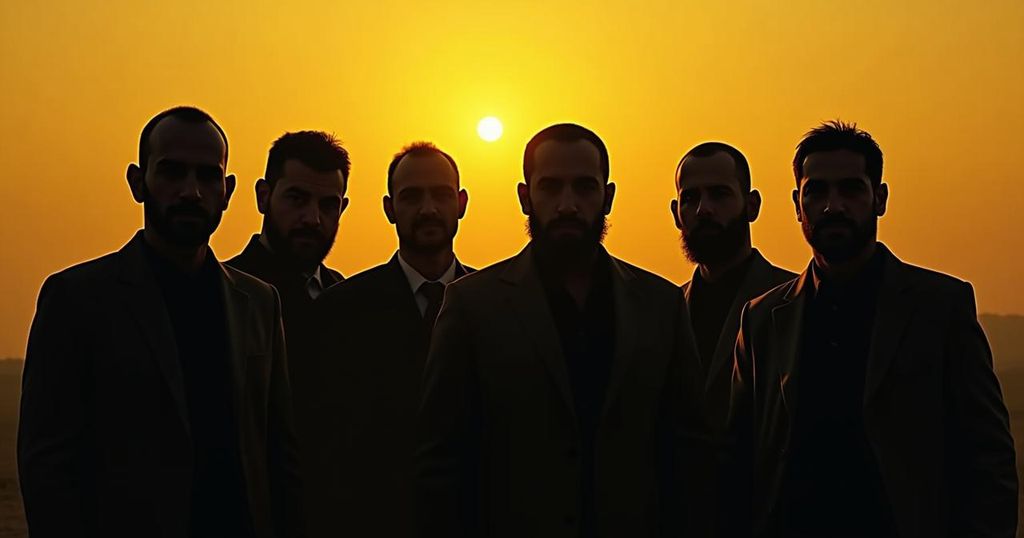Hezbollah in Crisis: The Assassination of Key Leaders amid Rising Tensions

In a series of Israeli airstrikes, seven high-ranking Hezbollah officials, including leader Hassan Nasrallah, were killed, marking a significant escalation in hostilities. Hezbollah, a dominant force in Lebanon, is now left grappling with the aftermath of these losses, which have compromised its operational capabilities and leadership structure.
In a significant escalation of hostilities, the recent Israeli military operations in Lebanon have resulted in the deaths of seven high-ranking officials from Hezbollah, a powerful militant group. Among those killed was Hezbollah’s leader, Hassan Nasrallah, fundamentally altering the group’s structure and capabilities. Following the assaults, there was widespread shock in Lebanon and across the Middle East, as Israeli officials lauded strategic victories in their ongoing conflict with Hezbollah. The conflict intensified after Hezbollah engaged in support of Hamas, following the group’s unexpected assault on Israel. The recent airstrikes, which culminated in the death of Nasrallah, signal a new chapter in the protracted conflict between Israel and Hezbollah, marking a noteworthy development in the broader regional tensions. Hezbollah, founded in the early 1980s, has been a dominant force in both military and political dimensions in Lebanon. Nasrallah had been pivotal to the group’s evolution since taking leadership in 1992, guiding its strategy through multiple confrontations with Israel and bolstering its influence in domestic and regional affairs. His death, alongside key leaders such as Nabil Kaouk, Ibrahim Akil, Ahmad Wehbe, Ali Karaki, Mohammad Surour, and Ibrahim Kobeissi, represents a stark setback for Hezbollah, which has prided itself on its military capabilities. Nabil Kaouk, the deputy head of Hezbollah’s Central Council, served prominently within the group’s military infrastructure, while Ibrahim Akil led its elite forces, known as the Radwan Forces. Ahmad Wehbe played a crucial role in operational development within the Radwan unit, further emphasizing the operational capabilities that the group has now significantly diminished. The decrease in leadership has left Hezbollah in a precarious position, navigating the complexities of its ongoing conflict with Israel, while also considering its political standing within Lebanon. The remaining key figures, including Naim Kassem, who may be positioned as the next leader, along with Talal Hamieh and Abu Ali Reda, are now under heightened scrutiny from Israeli military intelligence. In summary, the recent killings mark a critical juncture for Hezbollah, signaling potential shifts in the power dynamics both within the group and in terms of its confrontations with Israel. The loss of such prominent figures not only undermines Hezbollah’s operational efficacy but also raises questions about its future strategy and leadership stability in the face of continuous Israeli aggression.
The escalation of conflict between Israel and Hezbollah is a continuation of long-standing tensions that have deep roots following Hezbollah’s formation in response to Israeli actions in Lebanon. Over the decades, Hezbollah has evolved from a radical militia into a significant political force. Its dual role as a military organization and political entity has complicated its relations with state and non-state actors within the region. The recent airstrikes have precipitated a crisis within Hezbollah, compelling its leadership to confront the implications of significant personnel losses while sustaining operational capacity against adversaries such as Israel and maintaining its influence within Lebanon.
The past week marked a deleterious turn of events for Hezbollah with the loss of seven senior officials, including its leader, Hassan Nasrallah. This development not only exemplifies the precarious nature of the organization amidst an evolving conflict with Israel but also raises critical questions regarding its future leadership and operational coherence. As Hezbollah attempts to navigate these challenges, the impact of these losses will likely resonate across the political landscape of Lebanon and the broader Middle Eastern milieu.
Original Source: www.nbcphiladelphia.com








